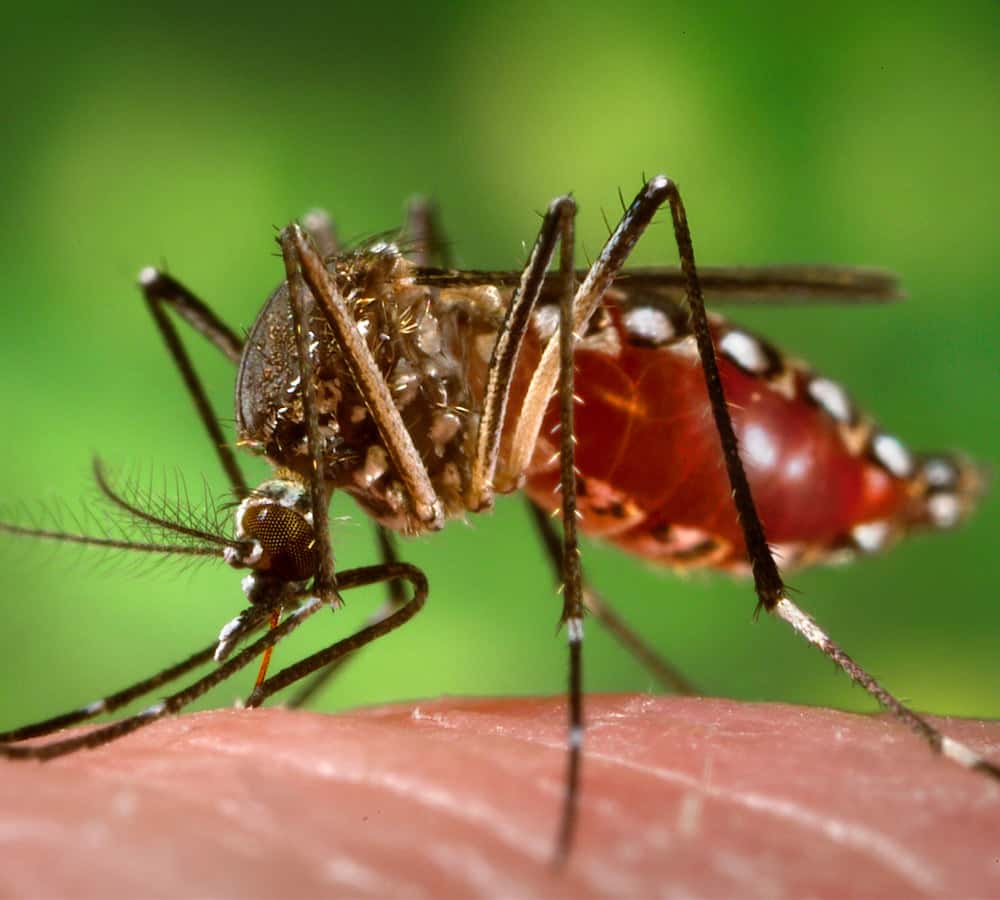
Why Mosquitoes Bite You and How to Outsmart Them
In this episode, Joe & Terry speak with two scientists studying mosquito preferences. Why are some people mosquito magnets while others barely get bitten? A range of factors influences mosquito behavior and may explain why mosquitoes bite you and leave your neighbor alone. Learn how to outsmart them.
You could listen through your local public radio station or get the live stream on Saturday, June 28, 2025, at 7 am EDT on your computer or smart phone (wunc.org). Here is a link so you can find which stations carry our broadcast. If you can’t listen to the broadcast, you may wish to hear the podcast later. You can subscribe through your favorite podcast provider, download the mp3 using the link at the bottom of the page, or listen to the stream on this post starting on June 30, 2025.
Why We Worry About Mosquito Bites:
You may think of mosquitoes as annoying insects with itchy bites. That’s certainly a reasonable summary in many places and times. But there are large swaths of the globe where mosquitoes carry deadly diseases. Malaria, for instance, kills an estimated 600,000 people a year. The majority of these victims are children under 5 years old living in sub-Saharan Africa. Even in the US, where malaria was eradicated in the mid-20th century, mosquitoes transmit some dangerous diseases, including dengue in some southern regions, West Nile virus, and in the northeast and the Gulf Coast, eastern equine encephalitis (EEE). The best prevention for these serious infections is to outsmart mosquitoes and avoid getting bitten.
Depriving Mosquitoes of Breeding Grounds:
One problem is that a few species of mosquito have evolved to live in close proximity to humans. They have adapted to breeding in standing water, but it doesn’t take much. An upturned bottle cap, a saucer under a potted plant or leaves lying on the ground can all offer mosquito breeding opportunities. Emptying those saucers and raking away the leaves should be a priority to reduce the risk of mosquito bites.
Do You Smell Delicious?
Both our guests have been studying what makes some people more appealing than others. To that end, Dr. Conor McMeniman and his team have set up the world’s largest multiple-choice smell test for mosquitoes in Zambia. They constructed a mesh greenhouse the size of two tennis courts that could be surrounded by eight single-person tents. A person sleeps in each tent and that person’s scent is wafted into the enclosure where mosquitoes are given a chance to congregate where the preferred scent appears.
This scent buffet for mosquitoes demonstrated that microbial metabolites from our skin microbiome have a significant impact on insect behavior. Mosquitoes seem to home in on short chain carboxylic acids as well as acetoin.
How Can We Outsmart Mosquitoes?
One simple and obvious step to avoid mosquito bites is to use window screens on our homes. That helps protect us inside. Air conditioning and ceiling fans also help.
We asked Dr. McMeniman how he protects himself when he is outside and what we should do. He recommends repellents. DEET is the gold standard, but some people find it unpleasant. An effective alternative repellent is derived from plants. Whether you use oil of lemon eucalyptus or DEET, it is important to read the instructions for applying the product properly.
How Do Mosquitoes Change Their Behavior?
In addition to smell, mosquitoes also use vision and temperature sensing to find humans to bite. (Did you know mosquitoes sing to each other? It is part of their courtship behavior.) Dr. Clément Vinauger studies how mosquito brains react during different activities. They also pay attention to people who swat them and seem to avoid those individuals who come close to killing them.
Mosquitoes can also change their behavior to adapt to human behavior. For example, a species of Anopheles mosquito that was nocturnal shifted to early morning biting over a period of a few years. That happened after the human population started using effective bed nets that protected them during sleep.
More on How to Outsmart Mosquitoes:
Dr. Vinauger made a casual observation that some soaps seemed to attract mosquitoes while others repel them. In a study, he found that most of the soaps his team examined appealed to mosquitoes. On the other hand, coconut scented soap (Native brand tested) kept them away.
We asked him about Listerine. He has not studied it, nor has he studied some remedies that our listeners like such as eating garlic. However, he suggested consulting the local gardening center or nursery in selecting plantings around the home that are not attractive to mosquitoes.
This Week’s Guests:
Conor McMeniman, PhD, is Associate Professor of Molecular Microbiology & Immunology at the Johns Hopkins Malaria Research Institute. Dr. McMeniman studies the molecular and cellular basis of mosquito attraction to humans.

Conor McMeniman, PhD, Johns Hopkins Malaria Research Institute
Clément Vinauger, PhD, is Associate Professor at Virginia Tech in the Department of Biochemistry. His research area is the molecular genetics of host-seeking behavior in insects. His website is: https://www.vinaugerlab.com/

Clément Vinauger, PhD, Virginia Tech
Listen to the Podcast:
The podcast of this program will be available Monday, June 30, 2025, after broadcast on June 28.
This week’s episode features bonus material, including exclusive content we couldn’t fit into the radio broadcast. In this week’s podcast bonus material, Dr. McMeniman explains why it would be really difficult to conduct a scientific study on whether taking vitamin B1 reduces your attractiveness to mosquitoes. We also discuss how climate change is likely to put Americans at greater risk for mosquito-borne diseases. Could malaria become a problem in the US once again? And we talk about “skeeter syndrome” in people who get nasty allergic reactions to mosquito bites. You can stream the show from this site and download the podcast for free, or you can find it on your favorite platform.
Download the mp3, or listen to the podcast on Apple Podcasts or Spotify.

